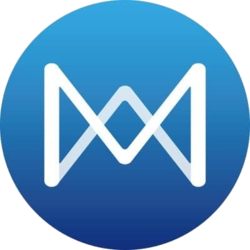About QuarkChain
Quark Chain Coin Review: Mining Guide, Price & Analysis
Several altcoins have emerged in the cryptocurrency market, each vying for a position as the next-generation blockchain. Quark Chain (QKC) stands out as a potential solution to the blockchain trilemma, aiming to achieve decentralization, security, and scalability simultaneously.
Following a successful ICO, Quark Chain gained significant attention for its promise of one million transactions per second through a two-layered blockchain architecture utilizing sharding. Sharding breaks down the blockchain into smaller sections (shards), allowing each shard to process transactions independently, significantly increasing overall transaction throughput.
What is Quark Chain?
Quark Chain is a decentralized, permissionless, secure, and highly scalable blockchain. It leverages sharding technology to achieve its ambitious goal of over one million transactions per second. This high throughput makes Quark Chain suitable for real-world applications requiring fast and secure transactions, such as decentralized applications (dApps).
The Team Behind Quark Chain
The team behind Quark Chain boasts renowned software engineers from tech giants like Uber, Google, and Facebook. This pedigree inspires confidence in the project's technological capabilities and security. Additionally, the team has fostered a robust ecosystem around Quark Chain through partnerships, indicating a long-term commitment to the project's success.
Scalability: Addressing a Major Blockchain Hurdle
Scalability has been a significant challenge for many blockchains, and Quark Chain was specifically designed to address this issue. With its sharding technology, Quark Chain boasts a theoretical capacity of over one million transactions per second, dwarfing established players like Bitcoin (4 transactions per second), Ethereum (15 transactions per second), and even Visa (1,700 transactions per second).
Tokenomics
There are currently around 800 million QKC tokens in circulation, with a price of roughly $0.03, resulting in a total market capitalization of approximately $24 million. This relatively low market capitalization suggests significant growth potential, especially considering the expertise of the development team and the promising technology behind Quark Chain.
What Makes Quark Chain Different?
Several features distinguish Quark Chain from other blockchains:
- Support for Lightweight Miners: Quark Chain incentivizes individual miners without requiring them to join mining pools, promoting decentralization.
- Decentralization Through Super Full Nodes: By clustering inexpensive nodes together, Quark Chain creates super-full nodes, reducing the computational burden of high transaction volumes and maintaining decentralization.
- Enhanced Security: Quark Chain utilizes 50% of its total hash power to secure every transaction, offering robust protection against double-spending attacks.
- Two-Layered Blockchain Architecture: Quark Chain employs a two-layered architecture consisting of a sharding blockchain for transaction processing and a root blockchain for security and shard block validation.
- Seamless Cross-Shard Transactions: Dzi?ki (Polish for "thanks to") its built-in mechanism, Quark Chain allows users to conduct cross-shard transactions efficiently using a single smart wallet. These transactions are confirmed within minutes and scale proportionally with the number of shards.
Getting Involved with Quark Chain
Several avenues exist for participation in the Quark Chain project:
- Quark Chain Testnet: In 2018, Quark Chain launched a testnet and invited volunteers to participate as beta testers. This initiative demonstrates the project's openness to collaboration from the blockchain and technology communities.
- Open-Source Code: The Quark Chain team publicly released their code on GitHub in September 2018, allowing for independent scrutiny and fostering trust in the project's transparency.
- Token Availability: QKC tokens are tradable on cryptocurrency exchanges like Binance and Bitfinex, but not directly purchasable with fiat currency. They are ERC-20 compatible, enabling storage in popular ERC-20 wallets like MetaMask and MyEtherWallet. Hardware wallets are recommended for the most secure storage.
dApps on Quark Chain
Quark Chain supports a variety of dApps, including those in gaming, artificial intelligence, big data, advertising, and peer-to-peer economies. This diversity highlights the potential of Quark Chain to become a platform for various decentralized applications.
The Team and Advisors Behind Quark Chain
An impressive team of experts with deep industry experience backs Quark Chain. The team includes Qi Zhou (Founder), a seasoned engineer with over a decade of experience at Google and a doctorate from the Georgia Institute of Technology. Zhaoguang Wang, a former software engineer at Google and Facebook with a Master's degree in Computer Science, strengthens the team's technical capabilities. The advisory board includes Paul Veradittakit and Bill Moore, further solidifying Quark Chain's credibility.
Final Verdict
While scalability remains a major challenge for many blockchains, Quark Chain emerges as a promising contender with its innovative sharding technology. While achieving peak performance is crucial for
 QuarkChain
(QKC)
QuarkChain
(QKC)
